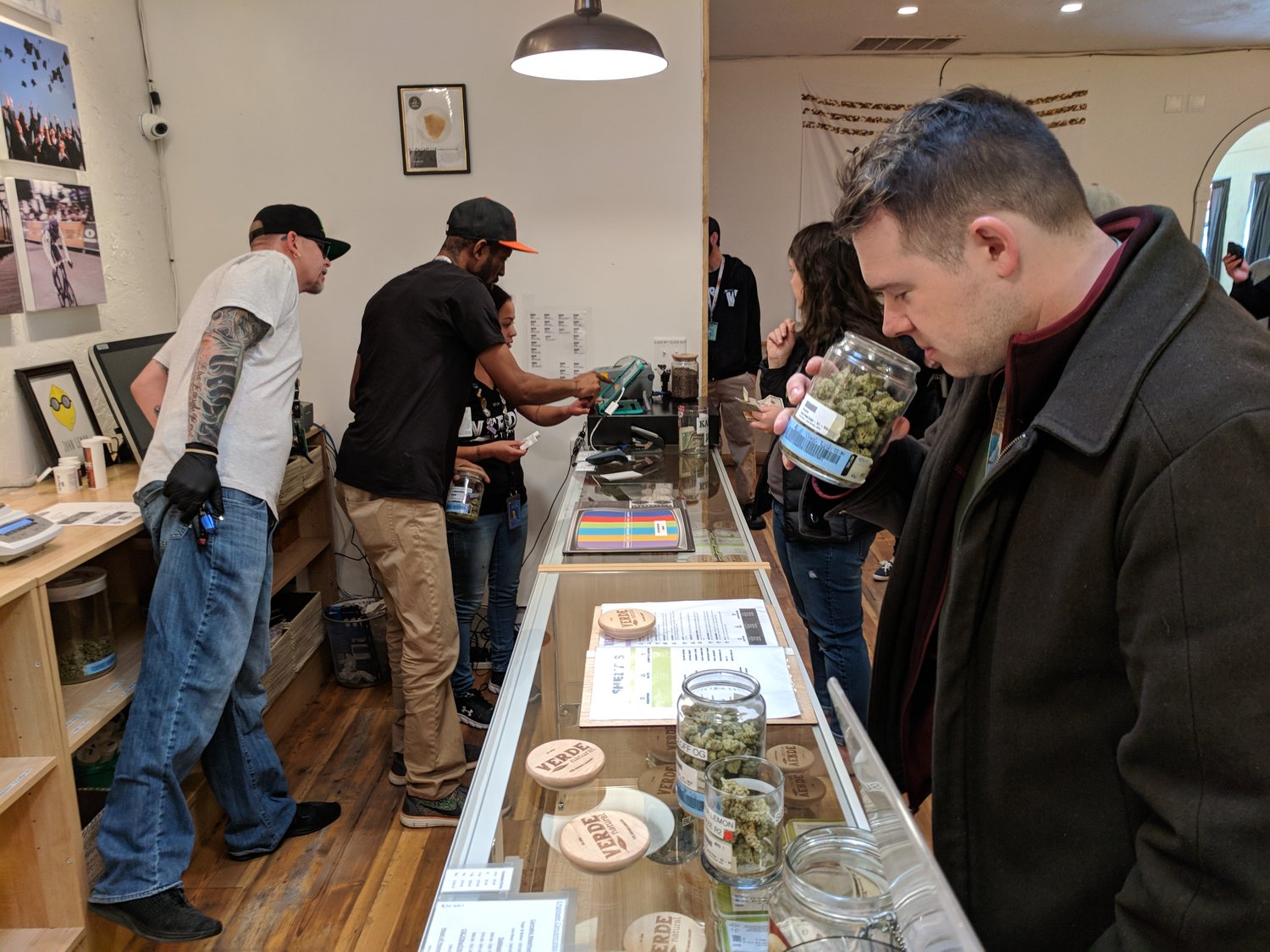No pot sellers permitted in Town of Oyster Bay
The Town of Oyster Bay opted out of the state's marijuana legalization law, the Marijuana Regulation and Taxation Act, allowing cannabis retail dispensaries and on-site consumption sites following a lengthy hearing Tuesday, with both supporters and opponents of the legislation vocalizing ramifications of opting in or out of the law down the line.
“I think it’s going to be a failed experiment and [opting-in] is going to cost New York a lot of lives,” said Town Councilman Steve Labriola at the Dec. 7 meeting of the Town Board. “Votes like this have consequences and [I believe] this is a long term consequence. I don’t know if our state can undo this if we start down this path.”
The resolution states the town’s “opt-out” decision only prohibits the retail sale of adult-use cannabis and the existence of on-site smoking locations as part of the state's Cannabis Law. Opting out still allows residents to grow or consume marijuana in their homes while not violating the state’s cannabis laws, as home growth is covered under a different section of the MRTA, not impacted by the opt out decision.
Town Board meeting attendees in favor of opting out said they were concerned about the normalization of marijuana use, users driving while under the influence of marijuana and children having access to the drug Proponents of opting in said allowing dispensaries and onsite consumption sites would be better than having an unregulated black market and that it would generate taxes and add jobs to the recovering, post-pandemic economy.
Ultimately, the vote was unanimous among the board to opt out. With this decision, Oyster Bay joins the towns of Hempstead, Smithtown, Islip, East Hampton and Shelter Island on a growing list of municipalities choosing to opt out of the legislation.
“There's a real clear distinction between decriminalizing a drug, and promoting the heck out of it,” Dr. Jeff Reynolds, president and CEO of the Family and Children's Association, in Hempstead, said. “At this point in time, we have an industry that’s hell-bent on promoting the heck out of marijuana. It shouldn’t be happening in this town.”
The FCA offers a variety of resources to vulnerable families, children and seniors, in both Nassau and Suffolk counties. In regard to drug use and addiction, the FCA makes available a number of outreach centers, treatment plans and recovery resources, with a distinct focus on prevention for communities across Long Island.
A major reason many are leaning toward the opt out decision is the general uncertainty of an industry like pot and the basic lack of long-term results from the decriminalization of marijuana in a community.
“The way the law was written is we have one opportunity to opt out and endless opportunities to opt in at a later date, after this board sees what the rollout is like,” Town Supervisor Joseph Saladino said.
While municipalities who choose to opt out prior to the state’s Dec. 31 deadline can reverse their decisions and opt-in at a later date, choosing neither to opt in or out will preclude them from the decision to opt out in the future. Thomas Sabellico, an Oyster Bay town attorney, explained to the board at Tuesday’s hearing that the proposed local law would give it time to see how new regulations develop before taking the irreversible step of opting in.
“You can always appeal, go back and change things that aren’t working,” New York State Assemblyman Keith Brown said.
Brown, who represents the portions of Suffolk county closest to Oyster Bay’s borders, has long advocated for the prevention of drug abuse in his community and the rest of the state. In his latest push to better control the rising numbers of underage substance abuse, he has proposed a number of amendments to the MRTA, like increased education through marijuana use prevention programs, laws setting potency standards in cases of legal sales and research and development of a roadside marijuana test kit.
Proponents of opting-in argue the economic boost an industry like marijuana would initiate is too great to ignore when considering a vote like this one.
“Misinformation about dispensaries can lead to the loss of opportunity for responsible operators, the jobs and the economic fusion they can bring to the community,” Luca Negrino, a representative of the Local 338, the Supermarkets and Retail Workers Labor Union, said. The 338 represents about 13,000 workers across New York State — 500 of which reside within the Town of Oyster Bay.
The adult-use market is expected to generate over $300 million for the state annually, and municipalities who opted in will receive revenue from the three percent sales tax. “The state has given municipalities like yours the choice to opt-out,” Negrino said, “however if you choose to do so, you are undermining the opportunity to bring new jobs and businesses to your community, as well as a new revenue source for your local economy.”

 59.0°,
Mostly Cloudy
59.0°,
Mostly Cloudy 





